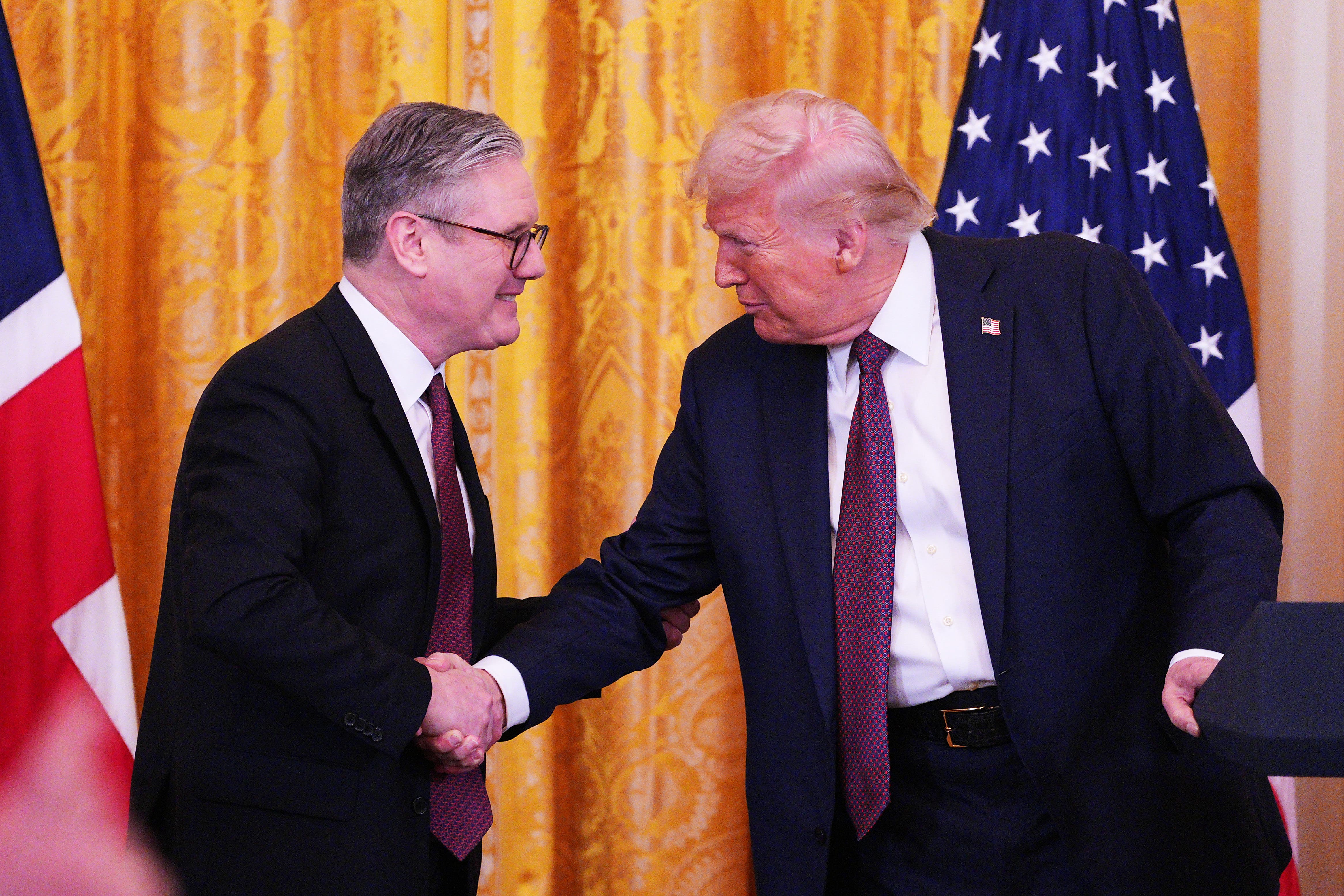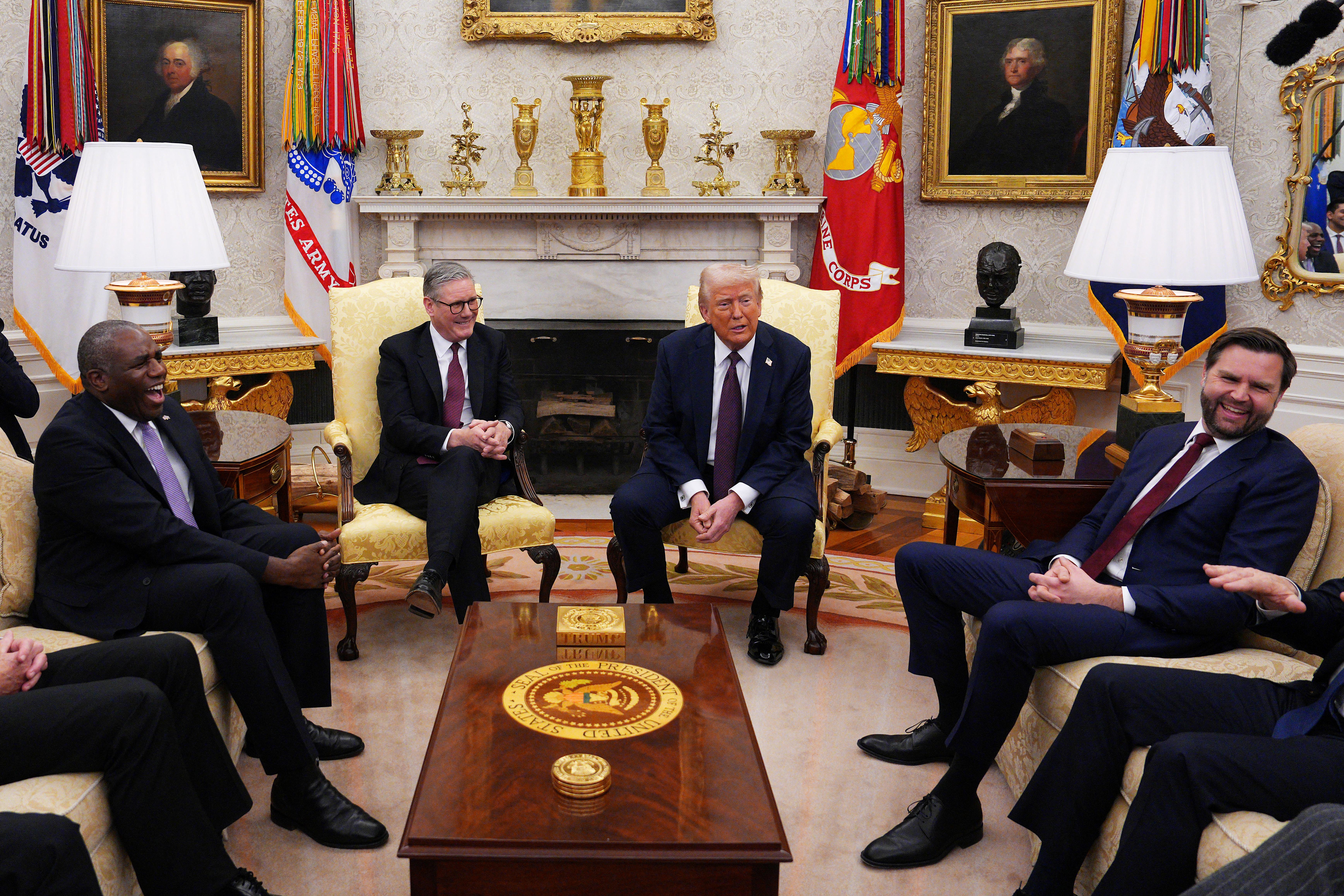Sign up for the View from Westminster email for expert analysis straight to your inbox
Get our free View from Westminster email
Get our free View from Westminster email
Keir Starmer is considering retaliatory measures against the US after abandoning hopes the UK can avoid direct tariffs set to be unleashed by Donald Trump this week.
The prime minister has suggested he could follow the EU and Canada’s lead on retaliatory tariffs, vowing to “act in the national interest” and “leaving everything on the table”.
At the beginning of last week, there had been optimism that the UK would avoid direct levies planned for the EU, China and Canada among others. And there was even a hope that the UK/US trade deal might still be completed in time for 2 April.
But a highly placed source admitted that once President Trump confirmed 25 per cent tariffs on imported vehicles last Wednesday, “negotiations became much harder” for the UK government.
Another source told The Independent: “After the business with cars, tariffs look inevitable now.”

open image in gallery
It comes after Sir Keir’s attempts to woo the US president with a state visit and public praise of his attempts to bring peace in Ukraine appear to have failed to persuade Mr Trump to exclude Britain from a trade war.
However, sources have told The Independent that the UK is still dangling the prospect of ditching the planned digital services tax if the Trump administration is ready to sign a new trade deal that could avoid tariffs.
The 2 per cent levy on tech companies would have raised £1bn but had provoked the ire of X owner and Trump ally Elon Musk, as well as the vice-president, JD Vance, who clashed with Sir Keir on the issue in the Oval Office last month.
The US/UK deal is based largely around future technologies such as artificial intelligence and bioscience. While it is “not a traditional trade deal” – avoiding complicated agriculture issues, such as US chlorinated chicken, and manufacturing including car production – business secretary Jonathan Reynolds has been crisscrossing the Atlantic in a bid to get a deal done and attempting to talk the Americans out of imposing tariffs.
With 2 April being dubbed “World Tariff Day” because it is when President Trump is set to unleash tariffs around the globe, UK ministers are “now prepared for any eventuality”.
The US president is describing it as “Liberation Day,” claiming it will rebalance America’s trading relations, but a source close to the prime minister insisted that he was sticking to his line that “the UK and US have a fair and balanced relationship in which the US has a slight surplus”.
The Downing Street source noted: “We will continue to talk after 2 April but we are now actively preparing for all eventualities.
“The prime minister will act in the national interests and reserves the right to retaliation.”

open image in gallery
The Treasury and Department for Business and Trade (DBT) have been wargaming different outcomes but one senior minister admitted that “the problem is [Trump] is completely unpredictable”.
“The conversations we are having are good and productive but you never know until you know,” the minister added.
Direct tariffs or not, the UK will still be harmed because trade barriers imposed against the EU, Canada and other trading partners “will have a significant impact on supply chains”.
Talks started last week on the main strands of a UK/US trade deal with Mr Reynolds meeting his American counterpart Howard Lutnick.
“The meeting went very well, Lutnick seems to be enthusiastic about getting a deal done,” a source said.
“You have to remember it is a fairly specialised trade deal and quite unusual.”
While Trump has said he believes a deal can be “done quickly”, there is still no timeline for completion.
However, there are concerns that the tech side of it will be led by Mr Vance, who has already made an issue of wanting to impose tariffs on the UK over alleged attempts to close down free speech with online protection laws.
A source noted that the offer of scrapping the planned digital services tax “could appease Vance’s issues with the UK and tech industry”. And there are hopes foreign secretary David Lammy’s “close relationship” with the vice-president “will help ensure problems are kept to a minimum”.
The governor of the Bank of England Andrew Bailey has already warned that the threatened extra charges – of up to 25 per cent – on imports to the US pose a major threat to the UK’s already faltering economic growth.
Last weekend, chancellor Rachel Reeves told Sky News she had “confidence in our negotiators” working to try to secure a carve-out for the UK.





















